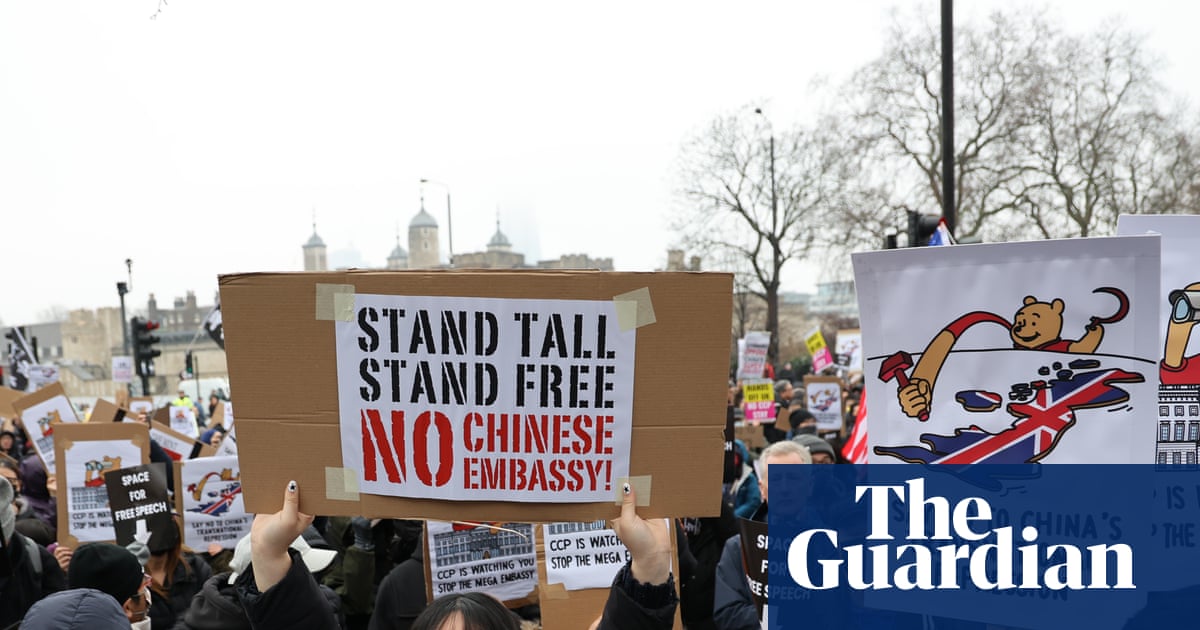What is the most common word in the world, apart from brand names and the like? And how does the frequency vary across different languages, or across writing/speaking/signing? Roland, via email
Send new questions to [email protected].
Readers reply
According to the Oxford English Corpus, the is top of the anglophone pops. Not surprisingly, no features on the OEC’s hot 100, but not yes (neither of which make the grade in the Irish language, which has no equivalents). EddieChorepost
Wait, are you saying Irish has no word for yes or no? How does that work? How do you answer simple questions? How do you express agreement or disagreement? How does a two-year-old child say anything at all if not no? second22soprano
“Wait, are you saying Irish has no word for yes or no?” I am. EddieChorepost
I see what you did there. second22soprano
Why? LorLala
And. TopGyre
I would have guessed the. Would you count le, la and les as separate words? And what about languages such as Russian, which, I believe, lacks a definite article? Hilary AJ
In English it would be the, from collections of written works. Translations as le, la, les, el, os, der and so on in the most widely used European languages would probably rank the word highly, too. Yet eastern languages such as Chinese and Japanese don’t have a direct equivalent. Are westerners wastefully overusing an unnecessary word? leadballoon
If we’re talking about words as a noise or vocalisation then la is up there. It’s a definite article in French and Spanish, and it’s an informal sentence ending in Cantonese – so it could be the most common human noise. MattPerry2679
Er. annamayo
In spoken English, my money’s on like. EddieChorepost
From conversations I hear around me on the street, on the bus, etc, I am, like, certain that like is the most common word in spoken English among people aged, like, six to 40. PatLux
I was thinking love, personally. Kind of takes the magic out of things, and it’s not spoken English, but Google Ngrams sort of gives an answer, provided the top words are used as inputs for your search. relevantusername
I’d love to say love is the most popular word, at least in English. But OK is a fine word too, and it’s recognised in nearly all languages as a mutual agreement that urges friendship if not love. RPOrlando
Patriarchy. PeteTheBeat
OK (okay, Ok, O.K.) is probably the most spoken and understood word in the world. It has been adopted into all the most widely used languages, including http; spelling, characters and format might vary but the sound is consistent. Quite remarkable, since the origin is unknown (despite many competing theories) and the first written records are less than 200 years old. leadballoon
But OK is almost certainly originally from an African language and was first used by enslaved people in the US. It was such a useful word that it spread quickly. It’s racism that has prevented this from being fully accepted, and the weird explanations you find for its origins completely ignore the fact that it already existed in a language the enslaved people were using. Occam’s razor? madpowerwalker
From Oxford Dictionaries: “Mid-19th century (originally US): probably an abbreviation of orl korrect, humorous form of all correct, popularised as a slogan during President Van Buren’s re-election campaign of 1840 in the US; his nickname Old Kinderhook (derived from his birthplace) provided the initials.” LintHuman
Taxi seems to be pretty universal. Stop can be seen on most of the roads in three continents. alexito
Me, us, you, they. marialarios
Mama, universe, radar, laser, telephone, motor, continent. Superdrinker B
Cinema. tomlerner
It should be sack as per Dr Johnson’s observation in his dictionary: “It is observable of this word, that it is found in all languages, and it is therefore conceived to be antediluvian.” The antediluvian reference was carried forward in the Oxford English Dictionary’s etymology of the word, referring to “a prehistoric type”. Sack, a universal measure used in trade throughout the empires of the Phoenicians, Greeks and Romans, though I suspect Dr Johnson was less familiar with Asian languages. encaenia
I would say aubergine. From its origin, probably in a Dravidian language in India, it has morphed into a variety of words in different languages, all denoting the same thing. Melonjene is used in Trinidad and Tobago, as well as baingan, and if you order an aubergine dish in an Indian restaurant it will most likely be brinjal bhaji, recycled back to India by the Portuguese. A truly international set of words. marcolo
The most common name is Muhammad, with variants Mehmet, Mohamed, Mohamad, etc. Dr Arshad Mehmood
Well, I think Jesus. Mawuena Isaac
I would think good and God would be up there in many languages, in the spoken word at least, used as a way of greeting by most, or as part of a response to one. Good morning, buenos dias, bonjour, Alhamdulillah … woodworm20
If you mean words that are the same in as many languages as possible across the globe, then maybe (with small variations): OK, taxi, stop, police, coffee, mama, papa, sugar, zero and chocolate. linthuman
The most common word in the world is hello. subaglegasle gaher
The most common word is is. Theophile Madu
I think it’s the variants on mother: mom, momma, ma, mamma, mother, madre. I’d also really like this to be true. CashPoint
Absolutely. Variations used by more than the human species. SusCatNap
An unmeant sorry. Ayrton_5
“As common as muck” is a comparator, used when something is extremely common. This suggests that muck is the most common word. Randomusername222
I don’t know about the most common word in the world, but I can tell you about the word that is used in almost every movie and TV series: weird. I have seen/heard this word in almost every movie I have ever watched, and let me tell you something, I watch a lot of movies. toohurt
1 Eat. 2 Pray. 3 The F-word. 4 Cook. 5 Run. Afolabi Eunice
But. Anne Puckett
At spelled @. Melanie Foxcroft
The most commonly used word in the world is eat, as in the consumption of meals by humans and animals. In different languages across the world, we either tell ourselves or others about our urge to fill our stomachs, or our pets’ stomachs, two or three times a day! Sylvester Anumaka
The most common word in use the world over is you. Chief Greg Francis Anyia
It is the first person singular pronoun, I. RC Cowsik
The most frequent lexical nouns in any balanced corpus of pretty much any language will be words equivalent to people and usually equivalent to time. The verb have will also be high on the list. Dr Stephen J Disney
Huh? Paulo777

.png) 4 hours ago
5
4 hours ago
5

















































